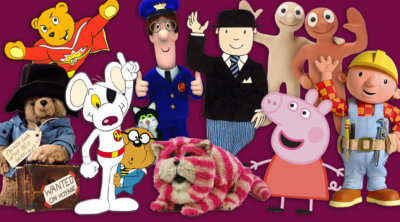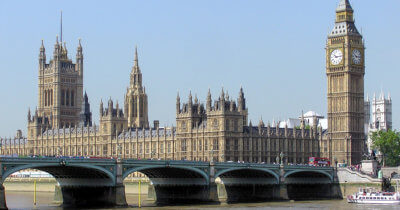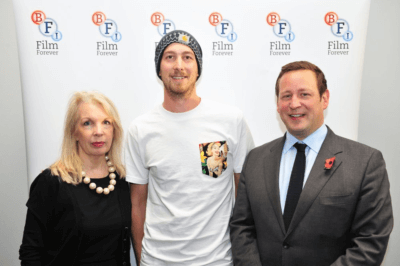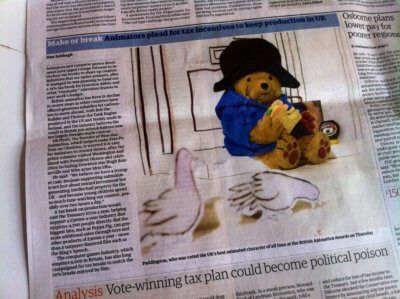The Decade Britain Got Animated Part 1: Save UK Animation!
Animation history is often viewed as the stories of colourful creators and their lovable characters. The business of animation and all the twists and turns that go with it hardly venture into the spotlight, but given the turbulence that we have faced in the UK here on Skwigly we have decided to look back at why this past decade could be viewed as one of the most incredible that the British television animation industry has ever faced. It’s a multi part story of where we are now as an industry, from being on the brink of collapse, to welcoming a boom in production that has seen UK animation flourish into an economic giant estimated to be worth over a billion pounds. The characters and creators play their part, but would have disappeared entirely we’re it not for an extraordinary turn of events.
In late 2019 the UK narrowly avoided recession, with the creative industries acting as saviour, holding the national aloft in order to avoid the country dipping into economic turmoil. This clear demonstration of how the creative industries should be valued in the UK. In financial terms they made over £100BN last year with film and TV providing over £16BN.

TV Animation in the UK has a proud legacy, one which it faced losing at the dawn of the 2010’s
Business is booming for the creative industries in the UK, however our animation industry started the decade with less fortune and was poised on the brink of collapse. Faced with international competition from countries such as Ireland and Canada who were gifted with generous production tax breaks (a mechanism where the government refunds a percentage of the tax money paid on a project in order to reinvest in the project) animation companies in the UK found themselves on the back foot without any. At the time Irish companies would receive a 28% rebate on their taxes and Canadian companies would get a whopping 65%.
It’s a situation that Oli Hyatt, co-founder of Blue Zoo Animation found himself up against. In 2007 when the company pitched to produce a new series based on a popular British icon they we’re hit with a perplexing note from the broadcaster, as Hyatt relates. “We really like your company, your budget is slightly cheaper than the other company, but they get tax credits so we’re going with them”. It was a familiar pattern for many studios at the time which repeated itself when the studio produced, developed and pitched a now major TV series to a channel and when they enquired if the broadcaster wanted to know how much it would cost them the broadcaster simply declined to even hear the amount, telling them that they would be too expensive. “They decided to chase the tax credits, which was understandable” Hyatt recalls. It would seem that faith in the project and its handlers was no match for a country with a buoyant industry supported by government.
Seeing our public service broadcasters going overseas was the final straw for Hyatt, who had charted the decline of the industry for some time. “In 2007/2008 besides work done here at Blue Zoo and at Aardman, there was comparatively little animated TV being made in the UK” it was clear that the quality was there but fiscal factors were holding back the industry “We either do something about it or we are not going to get these jobs”. It was clear that the UK animation industry, which had produced world leading television work for over half a century was on the verge of collapse. With incentives beating the broadcasters urge to back British it was clear that without tax incentives for the UK animation industry, in time there simply wouldn’t be a UK animation industry.
Hyatt met with industry bodies to highlight the situation and was alarmed to find complacency about the situation. He was told not to pursue the course he had set out because he “didn’t know what he was doing”, or that challenging systems would risk the existing Film tax credit. So when he asked what they were doing about the situation the answer was nothing. Hyatt spent the following nine months researching incentives in other countries, gathering data on the UK animation industry and spent an enjoyable summer holiday in Greece reading economics books. Based on this research and reading he pulled together a report called “Saving UK Animation” which outlined the drastic situation.

When their industry was at risk, a small group of animators had to challenge government policy
With the help of Blue Zoo’s local MP Mark Field and Julia Lopez the “Saving UK Animation” report made its way to the then Shadow Culture Secretary Jeremy Hunt. Hunt leafed through the 8 page report and gave the numbers and statistics a glance before dismissing them, saying they were “simple back of a fag packet calculations” and told Hyatt to return when he had a proper report. “I think he thought that would be the last he saw of me” Hunt underestimated Hyatt who set out to put together a fuller report. That was no easy task, the recession meant that animation companies didn’t have the funds or the man power to support the cause, with many emails going unanswered and many doors being shut on the cause. However a small and dedicated group of around 20 companies all eventually chipped in to produce a full economic report in 2011. “These were the real heroes of our industry” said Hyatt “Many of the companies were going bust as we were campaigning, which underlined the whole problem”.
It was decided the best course of action now was for companies sympathetic to the cause to lobby MPs with the new report. Traditionally if you are going to lobby parliament a letter writing campaign or a bunch of signatures on a petition is the usual way to attract the attention of your MP who might, if you are lucky, be sympathetic to your cause. Those that have written to their MP in the past are most likely familiar with the polite response they’re likely to receive from one of their hard working interns with a vague and polite, non-committal reply. This wasn’t good enough if the plight of UK animation was going to be noticed by politicians. The now small team of animation companies who had funded the report took an unusual route, they arranged meetings with their local MPs during their surgeries – time set aside for constituents to discuss local matters, and local animation companies closing up and down the country fit the bill. By visiting MP surgeries up and down the country the message began to spread with the local companies highlighting the local issue, and Hyatt tagging along to highlight the national one. It wasn’t easy getting the message across and Hyatt found his casual beanie hat and hoody style appearance was not to the liking of the sharp suited people of politics, when visiting one MP a rather awkward encounter took place “He thought I was there to empty the bins!”. Hyatt concedes that even his own mother often takes issue with his dress sense.

Amanda Nevill, CEO of the BFI, Oli Hyatt and Ed Vaizey, Culture Secretary
The unusual approach to lobbying with the new report was brought to the attention of Ed Vaizey, the then Culture Secretary. In Vaizey Hyatt had found an ally, someone sympathetic to the cause who could also see the economic sense of the appeal. Vaizey set up a meeting with the chancellor George Osborne in 2011. The report was greeted with a few nods. The group had a fair message “This is what our industry has done, this is what we could do, but if we don’t get the support it’s all going to go”. A £17 million tax investment would see returns of over £300 million from the government. It seemed like Tax incentives were not only the way forward, but also a no-brainer.
Lobbying parliament is a long and arduous process, with no guaranteed results at the end of it. Something big needed to happen in order to catch the attention not only of everyone in politics but also to inspire the public. The threat was clear, in the growing number of companies that were closing down and the increasingly barren landscape UK animation was becoming. The reality of the situation needed to be spoken clearly and the public needed to show that they cared also, according to one MP “If you can get Mumsnet to say we should do it, then it will probably happen, they run the country now”. It was Aardman Animations who stepped up to begin that conversation.
Miles Bullough, was head of broadcast at Aardman during this time and announced to journalists that Wallace and Gromit would have to be made abroad if conditions wouldn’t change in the UK. He outlined the crisis by using a few family favourites to add colour to the narrative. “Do we want to see Bob the Builder driving on the right-hand side of the road? Bullough told Radio 4 “That is what will happen if we don’t watch out,” he went on to outline the importance of a British shows, as educators and how, as educational tools UK kids might think they need to ring 911 to get the emergency services. An emergency had been highlighted and the sirens were now wailing. It was time to save UK animation. The news hit headlines with “Wallace and Gromit Creator may be driven out of Britain” and “Will Wallace and Gromit head abroad to beat tax?” sparking a public outcry for the government to change the tax system.

The plight of UK animation made headlines
Momentum was gathering. The group had began to talk on radio, TV and online about the situation. Whilst this was happening Baroness Benjamin, who has a long history with Children’s television arranged an exhibition of British Animation and a round table at the House of Lords was organised by Greg Lynn. The message was now getting to the top.
After three years of campaigning, emailing and visiting numbers companies Oli Hyatt received a phone call from Ed Vaizey on the 21 March 2012 telling him he should listen to the budget. Chancellor George Osborne stood at the dispatch box and delivered his budget, among it was the announcement the UK animation industry had been waiting for.
Dressed in a jibe aimed at the leader of the opposition, the chancellor announced that the UK was to implement the incentives, not only in animation but across the sector “This will attract top international investors like Disney and HBO to make TV shows in the UK, it will also support our brilliant animation and video game industries too, because it is the determined policy of this government that we keep Wallace and Gromit exactly where they are.”
The tax incentives for the UK animation industry had been announced, but this was just the start of the story as a new era began.
This is part one of the story, join us for part two soon, keep up to date with Skwigly on Twitter, Facebook and Instagram.

